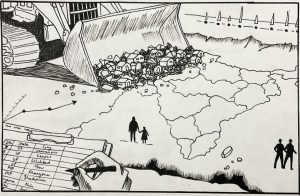

Join us
Related Posts
SUPPORT US
We like bringing the stories that don’t get told to you. For that, we need your support. However small, we would appreciate it.
The Polis Project is a 501(c)(3) nonprofit organization. Your tax-deductible contribution goes directly toward supporting our contributors, our staff of talented editors, researchers, writers, producers and artists, and our fellows.
All donations are tax deductible. Our EIN: 82-4072305
[mc4wp_form id=”1367″]
Designed by Collectively Hyd.
© 2021. THE POLIS PROJECT . All rights reserved.
